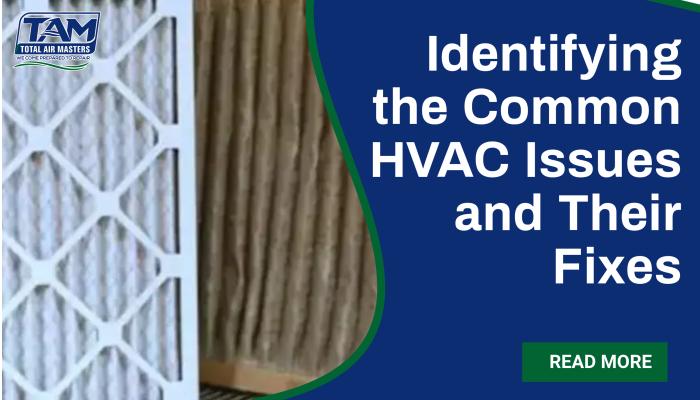
Keeping your home comfortable throughout the year heavily depends on a well-functioning HVAC system. When your heating or cooling isn’t working as it should, it can make your living space uncomfortable and lead to higher energy bills. Recognizing the signs that your HVAC system needs repair can help you address issues before they become costly problems.
One of the first signs to look out for is uneven heating or cooling. If some rooms in your home are too hot while others are too cold, your HVAC system might be struggling to distribute air properly. This inconsistency not only affects comfort but can also signal underlying issues that need attention.
Another major indicator is rising energy bills. If you notice your utility bills are climbing without any significant change in your usage, your HVAC system might be using more energy than necessary. This is often due to inefficiencies or parts that need repair or replacement.
By being aware of these warning signs, you can take action early, ensuring your HVAC system runs efficiently and keeps your home comfortable. Regular maintenance and timely repairs can save you money in the long run and prevent unexpected system failures, giving you peace of mind year-round.
Uneven Heating or Cooling
Uneven heating or cooling in your home can be frustrating. It’s a clear sign that your HVAC system isn’t working as it should. Several factors can cause this issue, and identifying the root cause is essential for comfort and efficiency.
1. Blocked Vents or Registers: Sometimes, the problem is as simple as blocked vents or registers. Make sure all vents are open and unobstructed by furniture or drapes. This allows air to flow freely throughout your home.
2. Leaky Ductwork: Leaks or holes in the ductwork can cause air to escape before it reaches certain rooms. Inspect your ducts for any visible damage. Sealing these leaks can improve airflow and make your home more comfortable.
3. Thermostat Issues: A malfunctioning thermostat can cause uneven heating or cooling. If your thermostat is reading the temperature incorrectly, it might not signal the HVAC system to turn on or off at the right times. Check if your thermostat is working properly or consider upgrading to a programmable model.
4. Improperly Sized System: If your HVAC system is too large or too small for your home, it will struggle to maintain a consistent temperature. An HVAC professional can assess whether your system is the right size and recommend solutions if it’s not.
Addressing these issues can help ensure that every room in your home stays at a comfortable temperature. Regular maintenance can also help identify problems early before they lead to uneven heating or cooling.
High Energy Bills
Rising energy bills can be a red flag that your HVAC system needs repair. When your system isn’t running efficiently, it uses more energy to heat or cool your home, leading to higher utility costs.
1. Dirty Filters: One common cause of high energy bills is dirty filters. When filters are clogged with dust and debris, your HVAC system has to work harder to push air through. Make it a habit to change your filters every one to three months to keep your system running efficiently.
2. Poor Insulation: Poor insulation can cause your home to lose heat in the winter and gain heat in the summer, making your HVAC system work overtime. Check your home’s insulation, especially in the attic and walls, to ensure it’s adequate.
3. Aging System: Older HVAC systems tend to be less efficient than newer models. If your system is more than 10-15 years old, it might be time for a replacement. Newer systems are designed to be more energy-efficient, which can save you money in the long run.
4. Regular Maintenance: Skipping regular maintenance can lead to decreased efficiency. Just like any other equipment, HVAC systems need regular check-ups to keep them running smoothly. Schedule annual inspections to catch and fix small issues before they become big problems.
By keeping an eye on your energy bills and addressing the underlying causes of inefficiency, you can reduce your costs and ensure your HVAC system operates at its best. Regular maintenance and timely repairs can make a significant difference in your home’s energy usage.
Strange Noises from the System
Hearing strange noises from your HVAC system is a sign that something might be wrong. Different sounds can point to different issues, and it’s important to identify and address them promptly.
1. Banging or Clanging: If you hear banging or clanging sounds, it could indicate that there are loose or broken parts inside the system. This might involve screws, panels, or even a broken blower motor. Ignoring these sounds can lead to more serious damage over time.
2. Squealing or Screeching: High-pitched squealing or screeching noises often come from issues with the blower motor. This could mean the motor belt is worn out or needs lubrication. If left unchecked, it can result in motor failure, which is costly to repair.
3. Rattling: Rattling noises suggest that some components are loose or that debris has entered the system. While this might seem minor, debris can damage internal parts, and loose components can worsen with time.
4. Humming: A low humming sound is generally normal when the system is running. However, if the humming becomes louder, it could indicate an issue with the electrical components. This requires professional attention to avoid any safety hazards.
By paying attention to these sounds and addressing them quickly, you can avoid major repairs and keep your HVAC system running efficiently.
Poor Air Quality in Your Home
Poor air quality in your home can be another sign that your HVAC system needs repair. Your system plays a crucial role in filtering out dust, allergens, and other pollutants. When it’s not working properly, the air quality can suffer.
1. Dust Accumulation: If you notice more dust around your home than usual, it could mean your HVAC system isn’t filtering the air properly. This might be due to dirty filters or a malfunctioning air handler. Regularly changing your filters is a simple way to improve air quality.
2. Allergy Symptoms: Increased allergy or asthma symptoms can also indicate poor air quality. If you or your family members are experiencing more sneezing, coughing, or other symptoms, your HVAC system might not be effectively removing allergens from the air.
3. Musty Odors: Musty or moldy smells can be a sign that there’s moisture buildup or mold in your HVAC system. This can happen if the system isn’t ventilating properly or if there’s a leak. Addressing moisture issues promptly is important for maintaining healthy air quality.
4. Visible Mold: Seeing mold around your vents or ducts is a serious sign that your HVAC system has a moisture problem. Mold can spread quickly and cause significant health problems, so it’s important to handle it immediately.
Improving air quality involves regular maintenance and prompt attention to any issues that arise. Keeping your system clean and functioning properly ensures a healthier home environment.
Conclusion
Taking care of your HVAC system is essential for keeping your home comfortable and energy-efficient. By being aware of the signs that indicate your system needs repair—such as uneven heating or cooling, high energy bills, strange noises, and poor air quality—you can take prompt action to address these issues. Regular maintenance and timely repairs help avoid more serious problems, saving you time and money in the long run.
If you notice any of these signs, don’t wait to get your HVAC system checked. Reach out to Total Air Masters for professional and reliable HVAC services near you. Our team is dedicated to keeping your system running smoothly and your home comfortable year-round. Call us today to schedule an appointment and ensure your HVAC system is in top shape!
